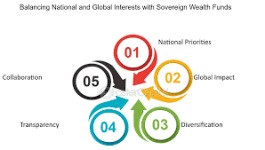This is one of the most pressing and polarizing political debates of our time. On one hand, national interest is the engine of state survival — driving security, economic prosperity, and the cultural integrity of a nation. On the other hand, global cooperation is the glue holding together a world increasingly shaped by interconnected threats like climate change, pandemics, terrorism, and economic instability.
In a world brimming with global crises, the instinct to retreat inward can be dangerous. When nations prioritize only their interests, borders harden, resources are hoarded, and distrust multiplies. The COVID-19 pandemic proved this: vaccine nationalism delayed global recovery, prolonging suffering across the world. In contrast, collaborative efforts like the COVAX initiative demonstrated that no one is truly safe until everyone is safe.
Yet, national interest is not inherently selfish. Governments have a moral obligation to protect their citizens. Ignoring that duty in blind pursuit of globalism can backfire — breeding resentment, inequality, and domestic unrest. Look at the backlash against global trade deals that eroded local industries, or immigration policies that stirred cultural anxieties. These are real concerns, not just populist talking points.
The real challenge is not choosing between national interest and global cooperation, but harmonizing them. National interest should not be about exclusion — it should be about enlightened self-interest. When nations cooperate to combat climate change, develop fair trade policies, and uphold human rights, they aren’t abandoning their citizens — they’re securing a future where those citizens can thrive.
Isolation is a mirage of control; cooperation is a strategy for survival. No country, however powerful, can tackle global threats alone. In an age of instant communication, interconnected markets, and shared vulnerabilities, nationalism that denies this reality isn’t strength — it’s self-sabotage.
The path forward isn’t a wall — it’s a bridge. A nation can and should lead in global efforts not despite its national interests, but because of them. The choice is not "us or them" — the smart choice is "us with them".
In a world brimming with global crises, the instinct to retreat inward can be dangerous. When nations prioritize only their interests, borders harden, resources are hoarded, and distrust multiplies. The COVID-19 pandemic proved this: vaccine nationalism delayed global recovery, prolonging suffering across the world. In contrast, collaborative efforts like the COVAX initiative demonstrated that no one is truly safe until everyone is safe.
Yet, national interest is not inherently selfish. Governments have a moral obligation to protect their citizens. Ignoring that duty in blind pursuit of globalism can backfire — breeding resentment, inequality, and domestic unrest. Look at the backlash against global trade deals that eroded local industries, or immigration policies that stirred cultural anxieties. These are real concerns, not just populist talking points.
The real challenge is not choosing between national interest and global cooperation, but harmonizing them. National interest should not be about exclusion — it should be about enlightened self-interest. When nations cooperate to combat climate change, develop fair trade policies, and uphold human rights, they aren’t abandoning their citizens — they’re securing a future where those citizens can thrive.
Isolation is a mirage of control; cooperation is a strategy for survival. No country, however powerful, can tackle global threats alone. In an age of instant communication, interconnected markets, and shared vulnerabilities, nationalism that denies this reality isn’t strength — it’s self-sabotage.
The path forward isn’t a wall — it’s a bridge. A nation can and should lead in global efforts not despite its national interests, but because of them. The choice is not "us or them" — the smart choice is "us with them".

